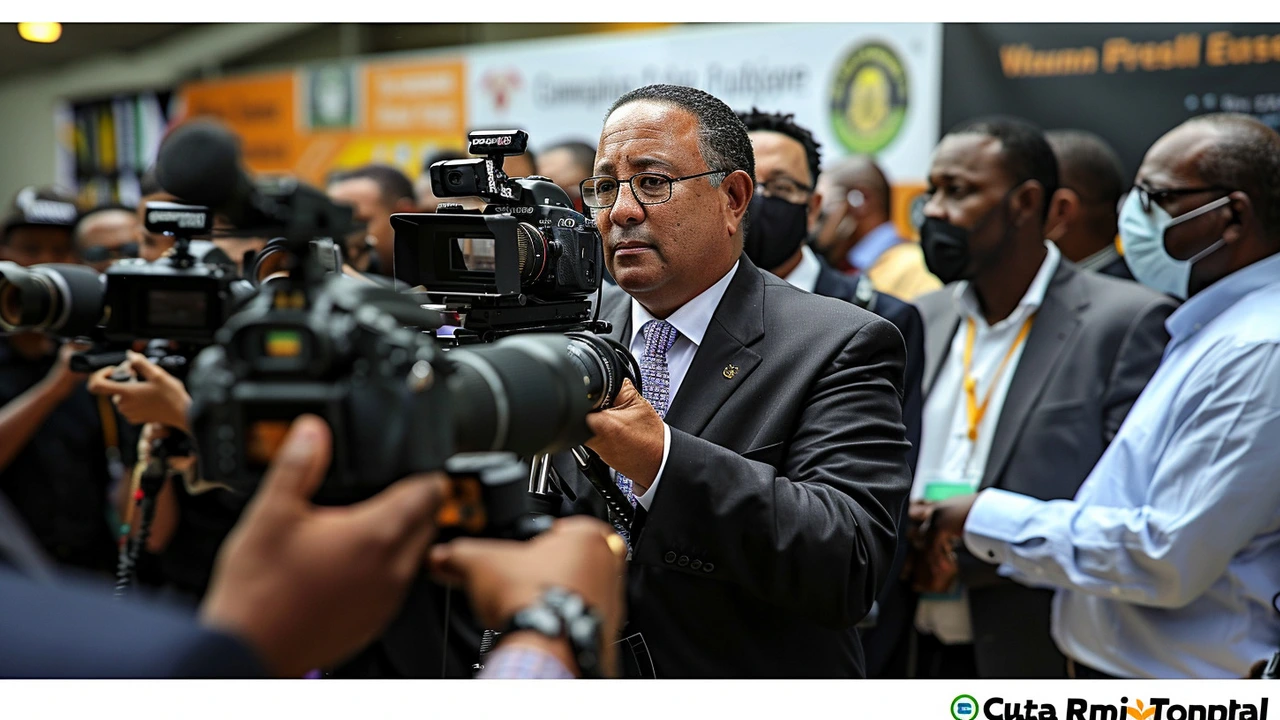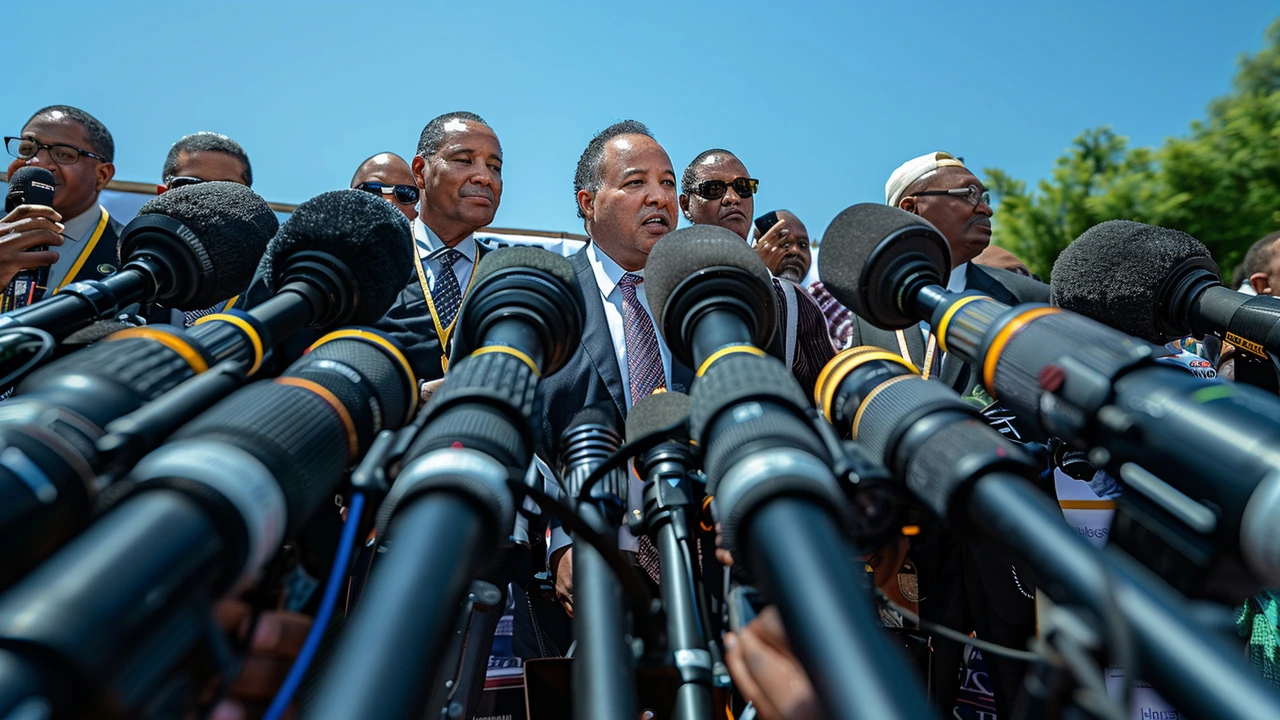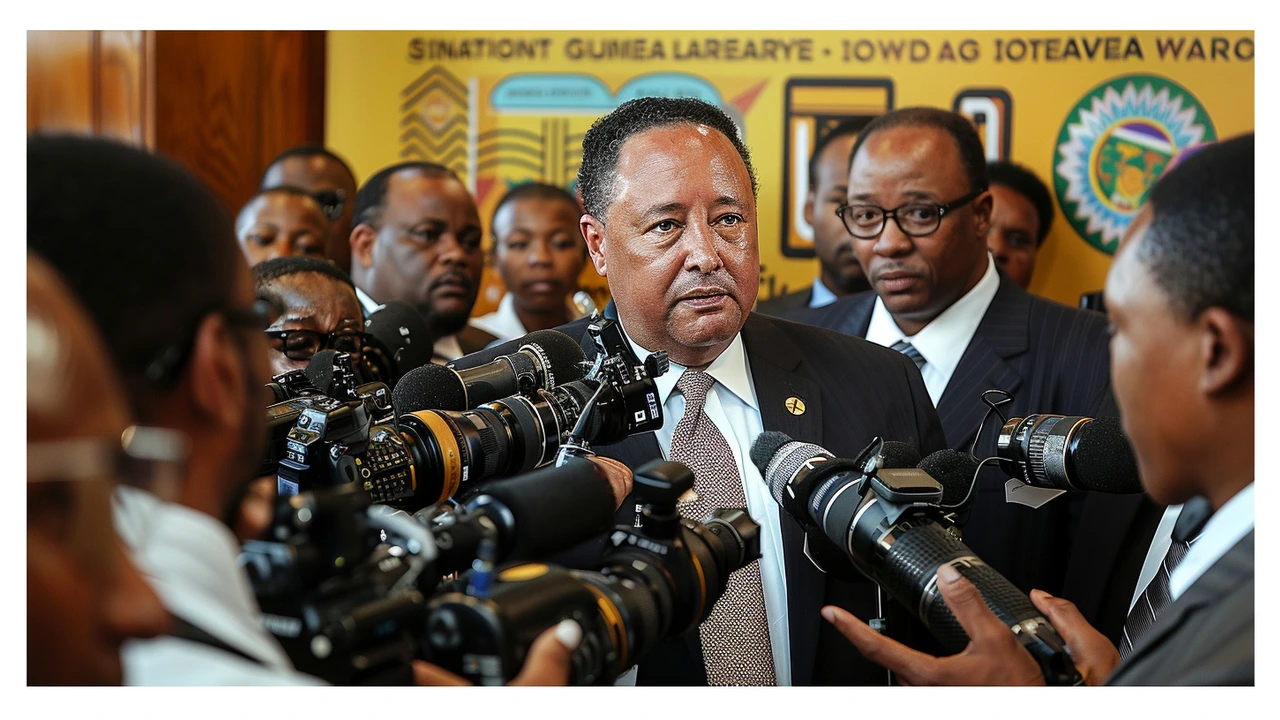
Historic Day as New South African Government Takes Shape
South Africa stands at the threshold of a new era as the National Assembly convenes for its inaugural session post the 2024 general elections. This pivotal session is set against the backdrop of the iconic Cape Town International Convention Centre, a venue chosen due to ongoing renovations of Parliament, still recovering from the devastating fire of December 2022.
The day began on a solemn yet hopeful note as newly elected Members of Parliament (MPs) swore to uphold the Constitution and respect the laws of the nation. In a moment brimming with significance and gravitas, each MP pledged their commitment to their roles, marking the start of a new parliamentary journey. The Chief Justice of the Constitutional Court, Raymond Zondo, presided over this historic assembly, ensuring the procedural sanctity of the day.
Elections and Nominations: The Political Theater Unfolds
Following the formalities, the stage is set for the crucial elections of both the Speaker of the National Assembly and the President of South Africa. The election of the Speaker is expected to be a significant highlight. While the position might witness multiple nominations, turning it into an intense contest, there's also a possibility of a unanimous selection, which will expedite proceedings.
As the parliamentary mechanics churn, post-lunch, the attention will pivot towards the presidential nominations. The process involves a call from the floor of the House, inviting nominations for the country's highest office. If only one nomination emerges from this process, the election concludes there. However, a scenario with multiple candidates would introduce a secret ballot, making the presidential election a clandestine and strategic battle of numbers.
Among the notable figures and anticipated outcomes, Cyril Ramaphosa stands as a strong favorite to assume the presidential role. His leadership through tumultuous times and his previous term place him in a promising position. Alongside this, Annelie Lotriet from the Democratic Alliance (DA) is poised to take on the role of deputy speaker, owing to a strategic agreement between the parties involved.
Concurrently, Provincial Dynamics at Play
While the National Assembly garners national attention, the first sittings of the eight provincial legislatures will concurrently, marking a day of political fervor across the country. This coordinated commencement of legislative sessions symbolizes a unified approach to governance, reflecting the synchronization at both national and provincial levels.
One of the early milestones has already been recorded with Alan Winde's re-election as the premier of the Western Cape. His re-election the previous night sets a precedent and adds a layer of continuity to the provincial governance landscape. Winde’s leadership in the Western Cape has been notable, and his unanimous re-election signals a vote of confidence in his governance style.

Unpacking the Agreement: Ramaphosa and Lotriet's Strategic Roles
The anticipated election of Cyril Ramaphosa as President is more than a mere political event; it symbolizes stability and resilience in South Africa's democratic framework. Ramaphosa, having navigated the country through challenging socio-economic landscapes, is seen as a unifying figure capable of steering the nation towards growth and recovery. His tenure has been marked by significant actions in combating corruption and strengthening state institutions.
On the legislative front, Annelie Lotriet’s expected ascension to the deputy speaker’s role underlines a crucial dynamic in parliamentary proceedings. Lotriet, a seasoned politician with a reputation for integrity and effectiveness, brings a wealth of experience and a promise of diligent execution of her duties. This agreement between major political entities underscores a strategic collaboration aimed at reinforcing the legislative process.
The Significance of Today's Proceedings
The events unfolding today are a testament to South Africa's robust democratic ethos. The swearing-in ceremony, the election of pivotal parliamentary roles, and the administrative orchestration happening in parallel at the provincial level showcase a nation's commitment to democratic processes. Each act of today’s proceedings, from an MP’s oath to the election of the President, is a brick laid in the edifice of governance and public trust.
As the MPs settled into their roles, the air buzzed with anticipation and readiness for the work ahead. The electorate’s mandate, delivered through the ballots, finds its voice in the solemn vows taken by their representatives. The importance of Chief Justice Raymond Zondo’s role today cannot be overstated; his presence lends an overarching judicial vigilance, ensuring that the democratic processes are upheld with the highest integrity.
This day will likely be etched in the annals of South African history not just for the official proceedings, but for the promise of a renewed commitment to governance, transparency, and the people's welfare. The collaborative spirit seen in the agreement between Cyril Ramaphosa and Annelie Lotriet serves as a harbinger of potentially smoother legislative operations moving forward.

Looking Ahead: Expectations and Responsibilities
The future, as shaped by today’s electoral outcomes in the National Assembly, presents a landscape filled with challenges and opportunities. Cyril Ramaphosa’s presidency will be watched closely as he attempts to navigate through issues ranging from economic recovery to social cohesion. His ability to balance these will determine the political and social fabric of the nation in the coming years.
Similarly, Annelie Lotriet’s role as deputy speaker comes with substantial responsibilities. Her proficiency in legislative matters and her balanced approach will be crucial in ensuring that parliamentary debates and decisions are conducted efficiently and fairly. The success of this parliamentary session will depend significantly on her ability to foster a collaborative environment among MPs.
As the dust settles on today’s historic events, the real work begins. The promises made within the walls of the Cape Town International Convention Centre must translate into tangible actions that affect everyday South Africans. The electorate will be keenly observing the performance of their chosen representatives, holding them accountable to the pledges made.
Conclusion: A Day Of Momentous Decisions
Today’s proceedings are not just about positions and titles; they are about setting the tone for the governance style and priorities for the coming years. With Cyril Ramaphosa expected to lead as President and Annelie Lotriet positions herself as deputy speaker, South Africa watches with bated breath. The unfolding political theatre promises a blend of continuity and new beginnings, with an undercurrent of hope for a progressively stable governance environment.
The eyes of the nation remain fixed on these leaders and their actions. The decisions made today echo beyond the walls of the National Assembly, carrying the weight of expectations of millions of South Africans, looking forward to a period of growth, stability, and integrity in their government.